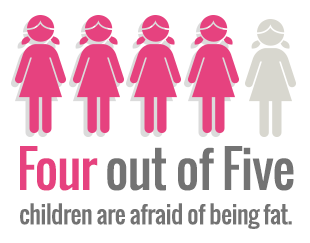 Update Apr. 2, 2015 Heads up to DADS and all men with loved ones experiencing an eating disorder: Joe Kelly will be giving his important workshop in Los Altos, CA April 25, 2015.
Update Apr. 2, 2015 Heads up to DADS and all men with loved ones experiencing an eating disorder: Joe Kelly will be giving his important workshop in Los Altos, CA April 25, 2015.
Oct. 12, 2014 Though “the incredible shrinking woman” sounds like a retro carnival sideshow, it’s become part of our present day media circus taking its toll on public health with dire body image and eating disorders from unattainable ideals put forth for both girls and increasingly, boys.
Pithy satire like this comedy sketch on “buying a Thigh Gap with your jeans” is gaining traction in mocking the absurdity of it all, but the eating disorders and medical impact landing on kids is no laughing matter.
When attempts to rein in preventable media madness fall short (e.g. the bipartisan Truth in Advertising Act and industry plea to join in a Heroes Pledge which ModCloth supported but others seemed to dismiss) it begs a bigger question…
Why is this public health problem falling on deaf ears?
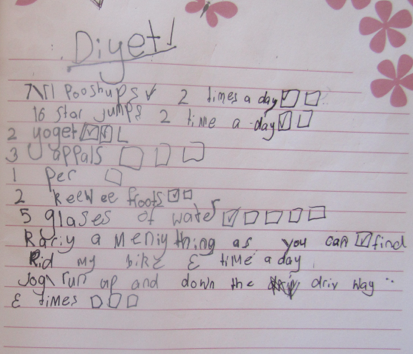 Furthermore…what can we do about it?
Furthermore…what can we do about it?
What are our options, solutions, and best practices to help navigate the murky media waters?
Where are public health pros like the AMA, the APA, the AAP to help deconstruct the corollary and causation media conversation, and demand we place children’s mental and physical wellness over profiteering?
And today’s topic:
How can support specialists and outreach coaches like Joe Kelly make a difference to families battling eating disorders? (ED)
Though I usually focus on media and marketing contributory factors (I’ve outlined plenty of ’em below, and some ideas for solutions) today we’re honored to have Joe Kelly’s considerable expertise working with the individuals who seldom appear on the radar when people discuss—or even treat—eating disorders: husbands, fathers, partners, stepfathers, brothers, and other male relatives and friends, so his insights through a male looking glass particularly appeal to me. As he poignantly sums:
“Eating disorders hijack the whole family.”
Though media plays a huge role in exacerbating the problem, Joe’s work involves the “what are we gonna do about it right here and now” conversation. Often parents are WAY out of their league when confronted with a segue from body image concerns to a full blown eating disorder. They don’t know where to turn, what to say, what to watch for, or how to cope with their own family’s immersion into what feels like an abyss. Enter Joe Kelly…
Author, activist, and former co-founder of Dads & Daughters who has been speaking on this topic for decades, Joe has agreed to share some of his insights from a recent workshop in Silicon Valley that he gave to men with loved ones (“MLOs” he calls them) who are often scrambling for hands-on advice and expertise to support those battling eating disorders without fear of missteps.
But before we chat with Joe…(aka The Dad Man)
Some media context: “How we got here”
 The thinning of women on TV and the head swerving ‘that was then, this is now’ ‘say whaaa?’ historic context helps connect the dots on media and marketing’s contributory role in the body blitz (minus systemic food politics problems).
The thinning of women on TV and the head swerving ‘that was then, this is now’ ‘say whaaa?’ historic context helps connect the dots on media and marketing’s contributory role in the body blitz (minus systemic food politics problems).
When media studies and statistics show that already nearly half of girls ages 3-6 worry about being fat it points to a tipping point of toxicity in our current zeitgeist amidst the ‘always on’ digital deluge of appearance-based messaging cues. (for the “too long, didn’t read” TLDR crowd, here’s a concise infographic then/now summary)
The UCF/British Journal of Developmental Psychology “Too fat to be a princess?” study also adds a layer of problematic pop culture pink think too. (but that’s a post for another day) Still, the logical query becomes:
Where’s the media prevention vs treatment?
If this weekend’s UCSD conference via the eating disorders center for treatment and research is any indication, the medical folks on the front line are too busy mopping up the mess to try to create solutions and troubleshoot treatment plans to lobby for media and marketing prevention. (On Twitter, follow @UCSD_EDC for conference data/recap; hashtag #ucsdedc2014)
Since the medical community is fully entrenched in treatment, it makes sense to remind that it’s OUR job, as parents and media consumers, to pushback full tilt on this runaway train, or at least switch the flippin’ track so kids don’t have their entire childhood derailed by ‘media as super peer’ when it comes to preventing public health problems.
Be clear, I’m not making a ‘causal’ link, but rather a contributory one. The newly compiled report by The Parents TV Council on the “Prevalence and Trivialization of Female Sexualization, Violence and Exploitation in Entertainment” wastes no time in calling out the correlation vs implied causation trope by using a common sense refrain, simply stating that kids are getting hurt…repeatedly. The PTC is not remotely shy about expressing how media is particularly impacting girls and women at multiple levels of health and wellness. (dating violence, DV, ED and beyond)
Industry AND parental accountability along with critical thinking is key for both media producers and media consumers to take a long hard look at not only “what we’re putting out there” but what is seeping into kids’ psyches at increasingly earlier ages, especially when the ‘under age 8’ developmental bumper is insufficient to guard against undue influence and brain processing. (Here’s CommonSense Media’s infographic summarizing the recent Zero to Eight study) So:
What are some of the preventive practices media could deploy to turn this tanker around with solution-based ideation in framing body image in media?
 I’d hope we’d all take a multi-faceted approach to heading off some of the media damage BEFORE it starts (from industry accountability to embedding health information directly WITHIN scripted TV/film for education).
I’d hope we’d all take a multi-faceted approach to heading off some of the media damage BEFORE it starts (from industry accountability to embedding health information directly WITHIN scripted TV/film for education).
We could also tap the same types of starpower tactics that seeded the unattainable body ideal concepts to flip the message and reframe beauty with health literacy, applauding celebrities that pushback against Photoshop and industry’s ongoing complicity in selling insecurity for profit. Great example this week?
Jennifer Garner’s talk show comment on Ellen acknowledging her permanent and ‘everlasting baby bump’ embracing the reality of physical changes and publicly ditching the sensationalized ‘shoulds’…Just imagine the social norming that could take hold if all the media ‘powers that be’ seismically shifted towards this healthier, natural lens!
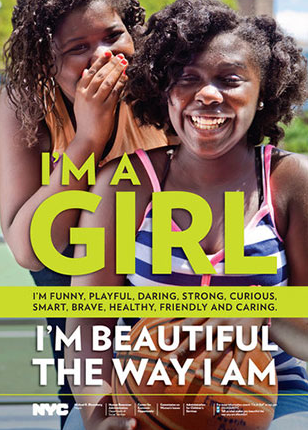 We’re starting to see body positive media momentum have an impact, from Colbie Caillat’s Try music video to Lorde calling out Photoshop distortions multiple times, taking a ‘just say no’ approach to digital alteration.
We’re starting to see body positive media momentum have an impact, from Colbie Caillat’s Try music video to Lorde calling out Photoshop distortions multiple times, taking a ‘just say no’ approach to digital alteration.
Even this season’s Modern Family glamorama Gloria character recently had a plot point centering around body image and ‘dressing up for herself vs Jay’ noting the sociological pressures/expectations of women as eye candy and what happens with a natural, makeup-free default, knocking on the door of the blatant double standards of gender roles and rules relating to appearance.
These are baby steps, but important ones, and TV and film could do much more to start addressing body image with media literacy by following NEDA guidelines for responsible media coverage while threading key topics CAREFULLY into scripts that enlighten and inform on this extremely difficult medical illness. Again, there are huge chasms in media portrayals, as you can see in this post about “10 TV Shows and Movies” touching upon body image and eating disorders. Kid gloves and discernment.
As this weekend’s UCSD medical conference program frames well,
“Eating disorders remain one of the most challenging disorders to treat, with an ongoing need to identify exactly what works for all who are affected by the disorder. Continued understanding and improvement of treatment for these disorders is critical, given that they also remain one of the most lethal disorders.”
Without further ado, here’s a helpful snapshot from Joe Kelly’s important work to help families gain a deeper intimacy and understanding of the mindset of loved ones in and out of the treatment sphere. (I’ll be writing a separate update on ED/body image impacting boys/men)
Whether you’re in dire need of gleaning insights to help ones navigate the tumultuous storm while we as a culture work on a ‘sea change,’ or just want to have the critical thinking on hand to watch your verbiage and deconstruct what’s out there in media messages being lobbed into homes, Joe’s insights and advice are a welcome lens of learning. Take it away Joe!
Dads & Daughters Author Joe Kelly
In Conversation with Amy Jussel, Shaping Youth
Amy Jussel: What do men say when they come to your workshops? Do they share their frustrations freely?
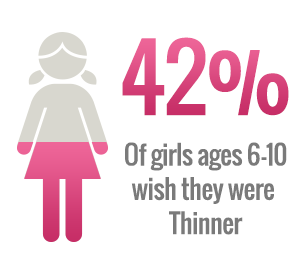 Joe Kelly: Well, at this latest one, a dad went off about how angry he is with the fashion industry. He sees a direct connection between the media/marketing images saturating his daughter’s life and the pain she is suffering right now.
Joe Kelly: Well, at this latest one, a dad went off about how angry he is with the fashion industry. He sees a direct connection between the media/marketing images saturating his daughter’s life and the pain she is suffering right now.
Complaints like this are common, and not surprising.
As I’ve learned during my many years writing about father-daughter relationships, it’s not until they have a daughter that most men have the vaguest idea of how toxic all of the thin-obsessed, hyper-sexualized marketing is. It’s a deep, visceral reaction that is much harder for a man to access if he’s talking or thinking about his mother, sister, partner, or female colleague.
The other things we hear a lot are frustration with the treatment process and terror about what’s happening to person with the eating disorder. Here are some quotes:
“Why does the treatment program operate like they only need to treat the client? Aren’t I a client, too? I influence my daughter more than some psychologist can. But I can’t tell anymore whether my influence is good or bad…and whether I’m the reason for the eating disorder. Maybe she and my family would be better off if I just disappeared.”
“I’m damned if I do, and damned if I don’t. Everything about this eating disorder makes me want to scream. And I am terrified that my son is gonna die unless someone tells me the right thing to do.”
“I don’t know what’s going on when my wife is off at treatment. She’ll come home saying things that don’t make sense — and I suspect she’s twisting some therapist or dietitian’s words for her own purposes. But how do I know? I have no idea what she’s being told. I’m completely on the dark about treatment. And I resent that.”
These words are clear evidence that every person with an eating disorder has men who are profoundly affected by the illness: husbands, partners, exes, fathers, stepfathers, brothers, stepbrothers, cousins, grandfathers, uncles and friends. These male loved ones (MLOs) deal with substantial dilemmas in the face of eating disorders — and they tend to do so silently, in isolation.
Amy Jussel: How do you coach the men with loved ones in your workshops? What do you TELL them and how do you deconstruct the illness when cases are so different?
Joe Kelly: We give them lots of information about the illness, and about our culture’s attitudes about food, body size, and health. Most of that info is aimed at myth-busting.
For example, most people think that eating disorders and anorexia are one and the same thing. We explain that anorexia is an eating disorder, and it is the most immediately dangerous one. But we also explain that it is the least common ED, followed by bulimia. Binge eating disorder (a strain of which some people call compulsive overeating) is the most prevalent.
We also discuss the way that modern Western culture conflates health and body weight. That mistaken belief system generates myths about weight gain, weight loss, and eating which fly in the face of how the human organism actually operates.
Amy Jussel: So, you’re teaching, demystifying, using media literacy…Are you also doing “support group” activities? What are YOUR qualifications?
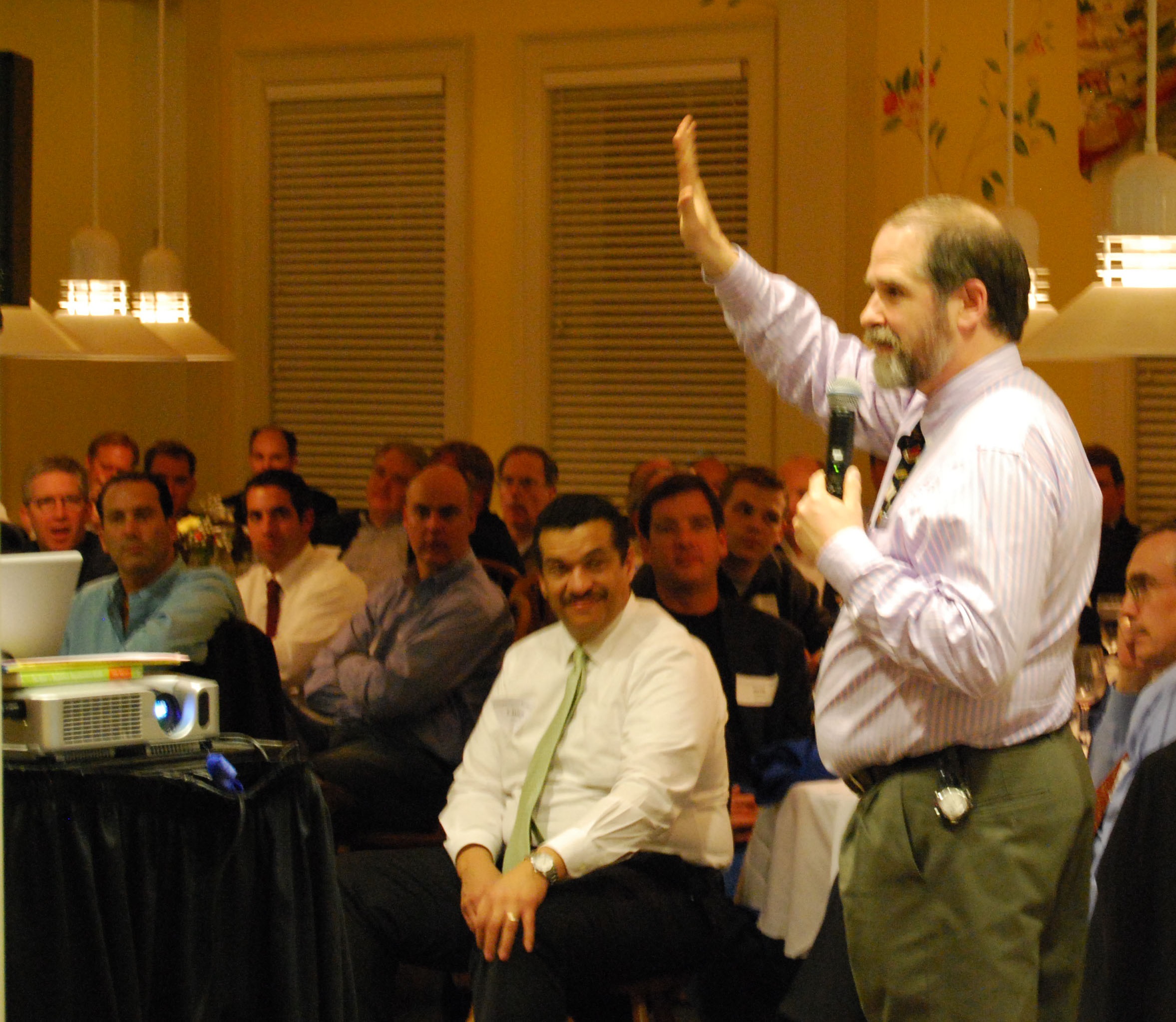 Joe Kelly: We intentionally approach this work as coaching, rather than therapy. That’s important, because I’m not a therapist—although an eating disorders therapist or physician always co-facilitates the group with me.
Joe Kelly: We intentionally approach this work as coaching, rather than therapy. That’s important, because I’m not a therapist—although an eating disorders therapist or physician always co-facilitates the group with me.
As MLOs, men are battling a clever, devious, and powerful opponent. Our coaching sits down with MLOs to “study the film” on this opponent. We learn the bizarre rules it plays by, and get a better handle on the relative merits of the “game plan” we’ve been running up until now. For instance, many MLOs take a head-on approach to the problem, running the fullback up the middle, only to get flattened by the eating disorder’s suffocating defense.
So, we lay out some alternative plays. We describe how to have neutral, empathic responses to the high stimuli (aka, manipulation and melodrama) of the eating disorder symptoms. We take situations and scenarios from the MLOs’ life and explore the difference between a) knee-jerk reactions to the disorder and b) mindful responses based on what we’ve learned about the opponent’s game plan. We practice these new responses through role playing—just the way a sports team practices a new set of plays.
Amy Jussel: That’s a lot of sports metaphors…So, how receptive are these men to this kind of coaching?
Joe Kelly: Our participants report feeling impotent in the presence of an illness they describe as irrational, unpredictable, cunning, powerful, stubborn, clever, baffling, devious, unfair and unjust. They struggle to understand and articulate how the eating disorder crisis affects their own lives. They are angry and grieving over how the illness’s arrival altered relationships with their loved ones and hijacked their families.
These MLOs want to know how (and if) it is possible to make their loved ones get better — as well as how (and if) it is possible for a MLO to keep his sanity in the process. They want to master the logical arguments that will convince their loved ones to give up the eating disorder. Their most frequent refrain is: “Tell me what to do.”
We men like to solve problems; this is a wonderful trait. We (quite rationally) want a plan that will lead to solutions. When confronting eating disorders, there actually are helpful things we can do, but we can’t expect those things to “fix” this problem.
After all, there is no silver bullet cure for eating disorders or surefire way to eliminate their impact on concerned bystanders. As eating disorders expert Margo Maine, PhD says about this unreasonable illness, “Logic doesn’t work; love does.”
The most effective responses to the dilemmas of living with eating disorders aren’t always obvious. In fact, they are quite counter-intuitive — no surprise, given the paradox and illogic of eating disorders themselves.
Amy Jussel: So, give us some specifics about those “effective responses.” I’m harkening back to your New York Times “Dad, Do You Think I Look Too Fat?” interview.
Joe Kelly: At the top of my list for MLOs are self-care, loving detachment and radical acceptance. When I introduce these concepts, many MLOs object: “What are you talking about? I need to hover over my loved one to protect them and focus on defeating the eating disorder! What good could it possibly do to go off and do ‘self-care,’ or to accept and detach from the problem? I don’t even know what ‘self-care’ means!”
For starters, self-care is not self-indulgent, self-centered or selfish. Instead, it is essential human nourishment fed by simple, rejuvenating activities like taking a walk, dining out with a friend, meditating, reading, shooting hoops, shooting skeet, or shooting the breeze. Yes, it means temporarily removing ourselves from the person with the eating disorder, but (paradoxically) this is a good thing.
Here’s why: The eating disorder self works hard to pull the person’s loved ones into its distorted way of perceiving and thinking about the world. It thrives on drawing us into arguments, arguments we simply can’t win. It loves having us rise to the bait of reacting in kind to its melodramatic, intense, and ultimately abusive behavior.
The challenge for MLOs is to stop reacting (e.g., attempting to argue with, punish or shout down the eating disorder) and start responding — with calm words and actions which keep the focus where it belongs: on the authentic self of the person we love.
Amy Jussel: Do you know whether this approach is working? Any quantifiables? Data? Criteria for deeming the program to be a success?
Joe Kelly: A self-care approach may not make any sense to an MLO at first. Or, it may make sense in principle, but appear impossible to pull off. Either way, I ask them to consider whether or not it actually works.
For example, self-care is a response that:
• Provides perspective by stepping away from a chaotic and manipulative illness
• Reminds an MLO that he has a life outside of the eating disorder vortex
• Strengthens an MLO’s connections and fellowship with other loved ones and friends
• Clears his head and releases emotional tension
• Helps an MLO remember that his struggling loved one is more than an eating disorder; she or he is a genuine person of value
• Demonstrates to his loved one’s authentic self that healthy self-nurturance is worth fighting for
Keeping in mind our sample size of around 100 men, preliminary results indicate the concrete benefits of learning this self-care approach. For example: we surveyed participants before and after the coaching group; in the “post participation” survey, men report feeling 16 percent more competent and 18 percent more hopeful about dealing with the eating disorder.
The outcomes are more like: “I’m much clearer about what’s going on now. I still hate it, but I feel like I finally know what my choices are.”
Amy Jussel: What do eating disorders treatment professionals think of coaching for “MLOs?” Does it step on their toes? Or do you ‘partner’ through hospitals or clinics? Where and how often do you do these groups? Are there webinars for those afar?
Joe Kelly: I want to be clear: this approach won’t cure an eating disorder or guarantee that anyone (other than an MLO himself) will change their behavior. But, as one husband put it, there are payoffs:
“It’s an opportunity to learn, to grow, to become closer to your loved one. Even if she isn’t involved in this particular activity, you’re gonna gain an understanding. You discover you’re not alone. It makes it a lot easier to talk about. And as soon as it’s easier to talk about, things are gonna be getting better.”
Therapists, physicians and dietitians who refer men for coaching report that nearly every one of the men is more involved in the identified client’s treatment than they were before the coaching began. The MLOs are bringing the client to appointments, asking questions, emailing the treatment providers, etc. The providers also report that the clients themselves notice a positive difference in how their MLOs are responding to the eating disorder.
I currently do a 4-week group or 1-day workshop four to five times a year in the San Francisco Bay area, but am also eager to bring the workshop to other parts of the country. I’m always happy to bring the MLO coaching to treatment centers anywhere around the country—where I can also provide evidence-based training to help professionals (therapists, dietitians, etc.) become more effective at mobilizing and utilizing their clients’ MLOs as treatment and recovery resources.
In addition, I provide one-on-one coaching for MLOs, using internet video such as Skype. I haven’t slated webinars or used the Google+ group approach to coaching yet, as there’s great value in sharing face to face.
Amy Jussel: Thanks, Joe, for your time and for the great work you’re doing helping families get through this challenge.
 You can find out more at www.joekelly.org/ (or specifically click on coaching) and email Joe at joekelly.org. A little birdie (Twitter) also informs he has an upcoming Academy of Eating Disorders #AEDChat with Pamela Carlton coming up Nov. 14. Follow him on Twitter at @joekelly3.
You can find out more at www.joekelly.org/ (or specifically click on coaching) and email Joe at joekelly.org. A little birdie (Twitter) also informs he has an upcoming Academy of Eating Disorders #AEDChat with Pamela Carlton coming up Nov. 14. Follow him on Twitter at @joekelly3.
Bio: Joe Kelly is a speaker, editor, and author of 11 books, including Dads and Daughters®: How to Inspire, Understand, and Support Your Daughter and, with Dr. Margo Maine, The Body Myth: Adult Women and the Pressure to Be Perfect. He co-founded New Moon Girls with his wife Nancy Gruver.
Amy’s P.S. note: I was first introduced to Joe’s work through his wife Nancy Gruver of New Moon Girls (now an affiliated org along with a Brave Girls Alliance partner) many ‘moons’ ago. I became a huge fan of his advocacy work for girls, particularly his ‘man to man’ campaign against sexualization where he asked CEOs, ad agency dads, and entertainment industry fathers to ‘put your daughter’s face in this ad’ and see if you’d still run it. I have written about his advocacy work with men many times, from watching the Super Bowl with your daughter to tips for preventing Halloween Horrors, as you can see by the links on Shaping Youth below, so don’t miss them!
Handful of Related Articles by Amy Jussel
Search: Body Image Archives
Gaming: A Battle Over Anorexia in World of Warcraft
Hey, Dads, Watch Your Language, Girls Are Not For Sale
Biggest Loser? Healthy Eating. Weight Loss is NOT Entertainment
Dialing for Disorders: Let’s Move to PREVENT Them
Truth in Advertising: A Bipartisan Body Image Bill Addressing Children’s Health
ModCloth Offers a Powerful Pledge Towards Public Health
Counter-Marketing Thinspiration, Killer Media Cues
Preteen Tips on Nutrition, Body Image, & “How to Say it To Girls”
Julia Bluhm’s Plea to Curb Photoshop Sparks Change at Seventeen
Shaping Youth Via Fatherhood: Joe Kelly On New Media, New Men
Dads & Daughters Togetherness: A First Hand Snapshot
Childhood Matters: Shaping Youth’s Fatherhood Resources
Dads & Daughters Bonds Will Grow And Mature Over Time
Dove Ditches Superbowl: Media Tips from Dads & Daughters
Peter Coyote Lends His Voice to Dads & Daughters Video
Dove’s Onslaught: Media Messages Pummel Girls’ Self Esteem
More Reading/Resources: Media Influence on Body Image
AMA Jan. 2014 Study/Boys: JAMA Pediatrics
Jan. 2014: Teen Boys Who Think They’re Skinny May Be At Higher Risk for Depression (Health Day News)
Mar. 19, 2014: Fresh Stats from GirlGuiding UK, launching ‘body confidence’ badge (The Guardian)
Mar. 10, 2014: Body Image Pressure Increasingly Affects Boys (The Atlantic)
Mar. 11, 2014: How Movies Fuel Boys’ Insecurities (Time)
Feb. 26, 2014: Necks, Butts Growth Areas for U.S. Plastic Surgeons (Health Day News)
Feb. 26, 2014: Kids’ Body Image Shaped By Parents (Health Day News)
Fast Facts: Teen Health and the Media (National Institute on Media & Family)
Media Literacy Infographic: Media and Body Image (NEDA)
Infographic/Stats: Girls and Media (NEDA) Boys and Media
Visual Credits: Pink stats graphics and child printed diet list via Rehabs.com, Thinning of Women in TV: iml.jou.ufl.edu; UCSD event screenshot, Joe Kelly, and NEDA screenshots all from their respective sites.
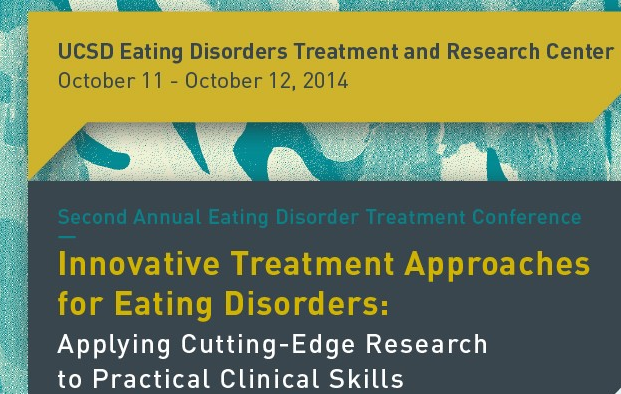










Related reading…with a HUGE reminder for a follow up feature I need to do regarding men and boys and the increase in eating disorders…is this piece about teen/TEDx speaker Erik Martin on how he used his gaming prowess to battle back from is own eating disorder, with of all tools…World of Warcraft: https://shapingyouth.org/gaming-battle-over-anorexia-world-of-warcraft/